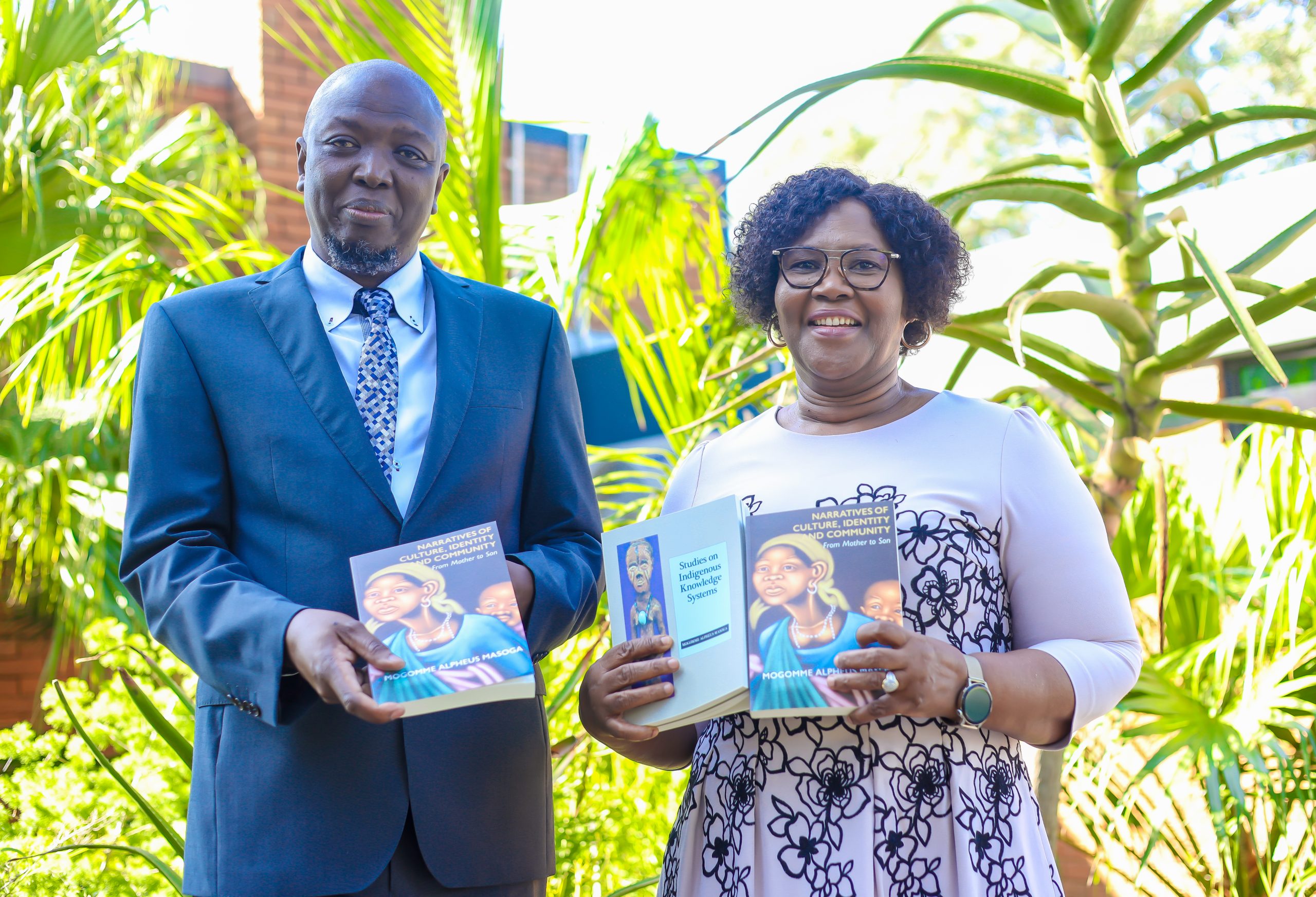The Faculty of Humanities & Social Sciences hosted the 2022 Africa Day edition of the Vice-Chancellors Webinar Series on Wednesday 25 May. It was tagged “Advancing Africa Thought: A presentation of Two Books by Prof MA Masoga”, the dean of the faculty. The
books are Narratives of Culture, Identity & Community (2021) and Studies on Indigenous Knowledge Systems (2020). The books focus on the role of African indigenous knowledge systems in knowledge production and development in Africa, a fitting theme for UNIZULU which rightly prides itself as ‘a node for African thought’. The event featured a thought-provoking opening by the VC, Prof X. Mtose who foregrounded the historical and ideological significance of the event. This was followed by a concise summary of the intellectual journey of the author given by the DVC Institutional Support, Prof S. Seepe. A powerful review of the first book was provided by Mr Nelson Ratua from the Department of English followed by response by Advocate E.M. Nkosi, a member of council of the National Arts Council.
The event rounded off with a short dialogue between the author, Prof Masoga and Dr A. Akpome, co-ordinator of faculty webinars. Dr SC Cele served as the programme director and the Deputy Dean, Research and Internationalisation, Prof AL Shokane gave the vote of thanks. Among others, the VC and DVC Institutional Support were commended for their commitment to the Webinar Series. IT colleagues and the Communications and Media Division led by Ms Gcina Nhleko were also praised for their professional behind-the-scenes roles and charged to take the series even wider. The event was covered by North Coast Radio.
Prof Masoga’s books promote the goals of the African Union especially with regard to the use of indigenous African knowledge in the African Renaissance and decolonisation as well as in actualising the AU’s Agenda 2063: ‘The Africa We Want’. The first book is a form of auto-ethnographic creative non-fiction narrating the formative years of the author in rural South African while the second offers academic essays on African indigenous knowledge systems. Both illustrate Prof Masoga’s ‘Afro-sensed’ theory which offers exciting possibilities for the decolonisation and enhancement of research, community engagement and knowledge production in institutions across Africa.

